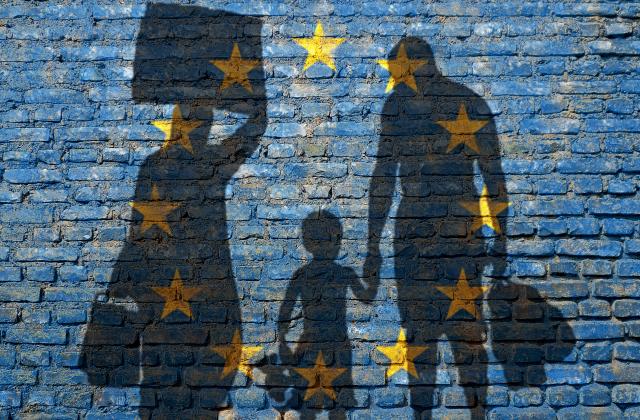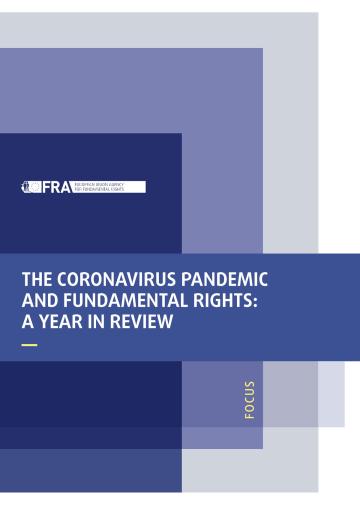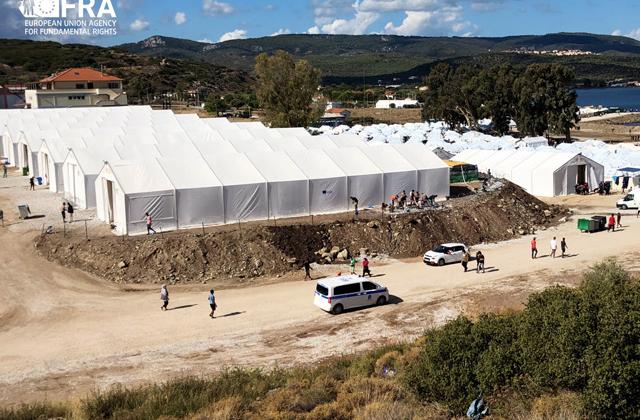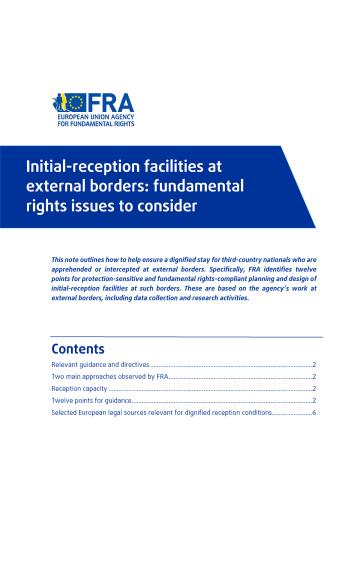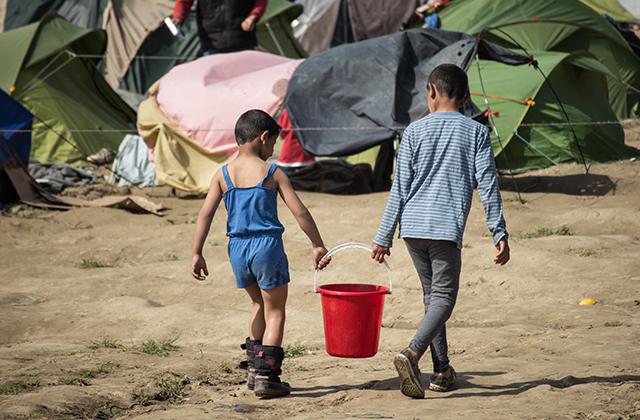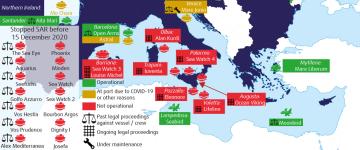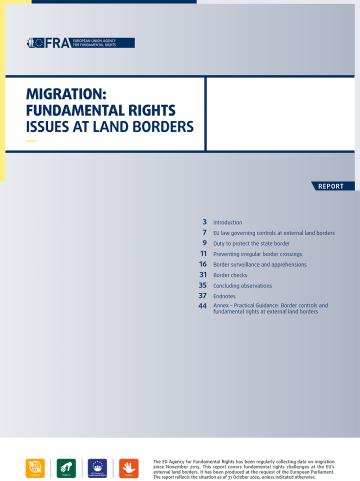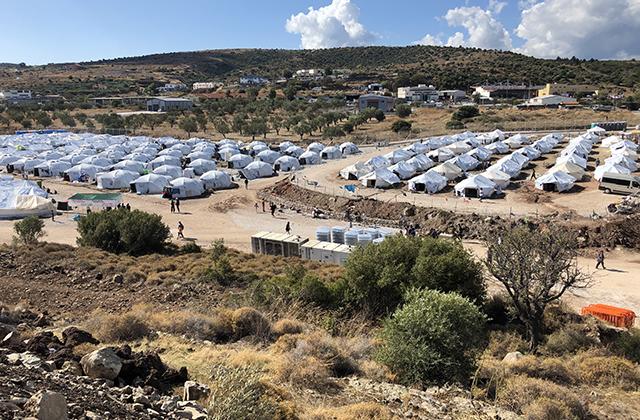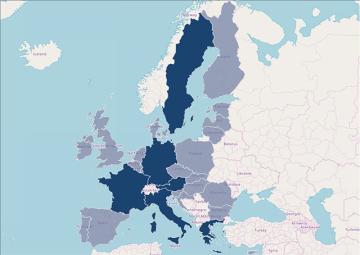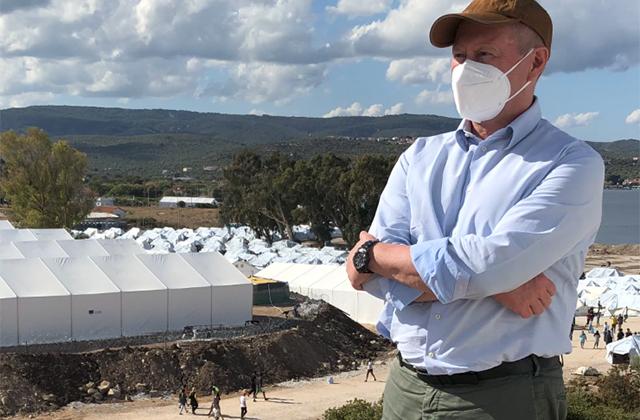Άσυλο, μετανάστευση και σύνορα
Highlights
- Handbook / Guide / Manual1August2024Migrant workers are particularly at risk of labour exploitation. Workplace inspectors play a role in protecting non-EU workers' rights. This report guides inspectors to identify abuse and protect migrant workers. In autumn 2024, FRA will publish a manual with extensive resources to support workplace inspectors.
- Report / Paper / Summary30July2024Fundamental rights violations on the EU’s land and sea borders often go unreported. Investigations into these violations need to be more effective. This report gathers examples of alleged rights violations of migrants and refugees between 2020 and 2023. It sets out 10 steps to promote prompt and effective national investigations into incidents of ill-treatment at borders.
- Periodic updates / Series1July2024The EU Agency for Fundamental Rights regularly collects data on the operations of NGO vessels involved in search and rescue in the Mediterranean. This includes any legal proceedings against them, as well as any difficulties in disembarking migrants in safe ports. This paper provides an overview of criminal investigations and other legal proceedings initiated by European Union (EU) Member States against civil society organisations deploying search and rescue vessels and aircraft in the Mediterranean and/or against individual crew members. The latest update covers the period from 2018 up until the end of May 2024.
- Handbook / Guide / Manual17December2020Η Ευρωπαϊκή Σύμβαση Δικαιωμάτων του Ανθρώπου και το δίκαιο της Ευρωπαϊκής Ένω- σης παρέχουν ένα όλο και πιο σημαντικό πλαίσιο για την προστασία των δικαιωμάτων των αλλοδαπών. Η νομοθεσία της Ευρωπαϊκής Ένωσης σχετικά με το άσυλο, τα σύνορα και τη μετανάστευση εξελίσσεται με ταχείς ρυθμούς. Υπάρχει ένα εντυπωσιακό σώμα νομολογίας του Ευρωπαϊκού Δικαστηρίου Ανθρωπίνων Δικαιωμάτων που αφορά ειδικό- τερα τα άρθρα 3, 5, 8 και 13 της ΕΣΔΑ. Το Δικαστήριο της Ευρωπαϊκής Ένωσης καλείται όλο και περισσότερο να αποφανθεί σχετικά με την ερμηνεία των διατάξεων του δικαίου της Ευρωπαϊκής Ένωσης στον τομέα αυτό. Η τρίτη έκδοση του παρόντος εγχειριδίου, που επικαιροποιήθηκε έως τον Ιούλιο του 2020, παρουσιάζει την εν λόγω νομοθεσία της Ευρωπαϊκής Ένωσης και το σώμα της νομολογίας των δύο ευρωπαϊκών δικαστηρίων με εύχρηστο τρόπο. Απευθύνεται σε επαγγελματίες του νομικού κλάδου, δικαστές, εισαγ- γελείς, υπαλλήλους στον τομέα της μετανάστευσης και μη κυβερνητικές οργανώσεις, στα κράτη μέλη της ΕΕ και του Συμβουλίου της Ευρώπης.




